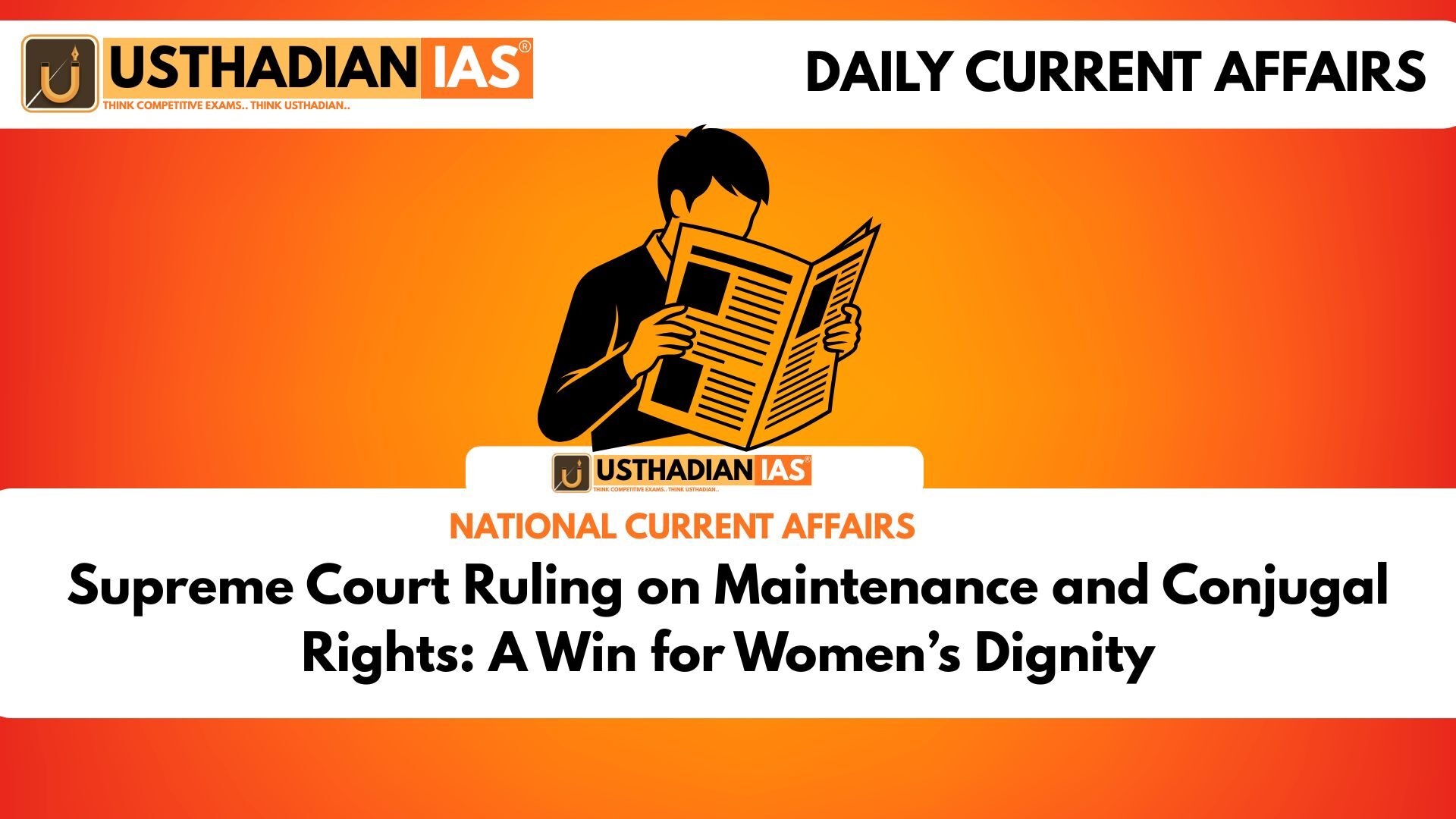A Verdict Rooted in Reality
Supreme Court Ruling on Maintenance and Conjugal Rights: A Win for Women’s Dignity: In a landmark judgment, the Supreme Court of India ruled in 2025 that a woman’s right to maintenance is not conditional upon her compliance with a conjugal rights order. Even if she refuses to return to her husband after a court has ordered her to do so, she is still entitled to financial support if she cannot maintain herself. This shifts the legal lens from rigid procedure to human dignity, especially for women living apart from their spouses for valid personal or safety reasons.
Understanding the Law: Section 9 vs Section 125
Section 9 of the Hindu Marriage Act, 1955 allows a spouse to request a court order directing the other spouse to resume cohabitation—known as restitution of conjugal rights. But this provision has faced criticism for appearing to force marital companionship, even when it’s emotionally or physically harmful.
On the other hand, Section 125 of the CrPC gives a woman the right to claim maintenance from her husband if she has no independent income. The Court clarified that this right exists independently of whether she obeys a conjugal rights order.
What Prompted the Ruling?
The case began in 2015 when a woman left her husband. He filed for restitution in 2018, and she sought maintenance in 2019, citing neglect. Despite a 2022 order asking her to return, she refused. Still, she was granted ₹10,000/month as maintenance. The husband challenged it, claiming her refusal disqualified her. The Supreme Court rejected his claim, saying each case must be judged on its personal context, especially concerning the woman’s safety, well-being, and financial dependence.
Real-Life Implications for Women
This ruling protects women from economic coercion, especially those escaping toxic or abusive marriages. A woman does not have to choose between returning to an unsafe environment or facing poverty. This also recognizes the reality that not all separations are legal violations—many are necessitated by abuse, neglect, or emotional trauma.
For instance, a woman living separately due to emotional harassment should still be able to pay rent, buy food, or support her children without being forced back into the marriage just to claim maintenance.
STATIC GK SNAPSHOT FOR COMPETITIVE EXAMS
| Topic | Detail |
| Section 9 of Hindu Marriage Act | Restitution of Conjugal Rights |
| Section 125 of CrPC | Legal provision for claiming maintenance |
| Key Supreme Court Ruling | Maintenance can be awarded even if woman disobeys conjugal rights order |
| Landmark Judgment Referenced | Puttaswamy Case (2017) – Privacy as a Fundamental Right |
| Condition for Maintenance | Based on need and husband’s ability to pay, not compliance with Section 9 |
| Year of SC Ruling | 2025 |








